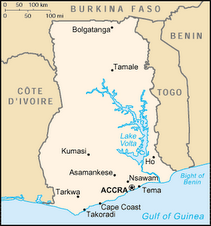A successful choice of therapy, but the next time will we be this lucky?
An obese woman with her airway obstructed from abscesses of her tongue, floor of the mouth (Ludwig Angina) and neck, caused by sharp molar teeth cutting her tongue, was the sickest patient this week. The woman was febrile, weak, and unable to speak or swallow her saliva. A tracheostomy was indicated to relieve her airway obstruction, or as a safety to prevent her sudden death if her airway obstruction worsened. The tracheostomy would have been difficult, because of her obesity, goiter and edema; oral intubation was impossible and nasotracheal fiberoptic intubation dangerous. Since there are no oxygen or suction machines on the ward, it was decided that the safer course was to give antibiotics, clindamycin (900mg every 8 hours) and ceftazidime, and then reevaluate her. Before leaving that night a check on the patient showed she would have received only one dose of clindamycin over the next 24 hours instead of the three doses ordered and the wrong cephalosporin. This was corrected. I spent a concerned night and was happy to see the patient alive the next morning. Each day misinterpretations of the orders were corrected with the nurses. She still has a swollen tongue, but now her floor of the mouth, neck and breathing are normal; she is afebrile and able to swallow liquids. The patient had diarrhea today and the clindamycin was reduced to 600 mg three times a day. The dentist will smooth her sharp molars before she is discharged to prevent a recurrence. We were lucky this time, but a tracheostomy is the standard, safer treatment choice to prevent sudden death in these airway obstructed patients.
The vice president of Sales for Zeiss Corporation kindly and promptly offered to find a transformer for the broken microscope which would enable us to do ear surgery. Light bulbs and sterile drapes for the microscope are needed, but these are obtainable.


No comments:
Post a Comment